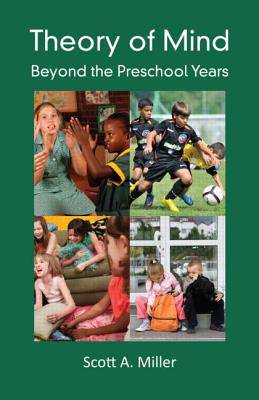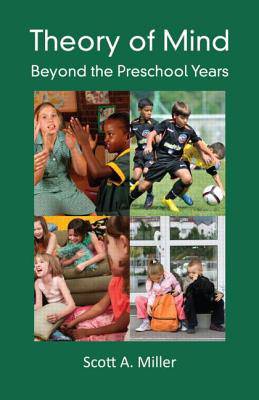
- Retrait gratuit dans votre magasin Club
- 7.000.000 titres dans notre catalogue
- Payer en toute sécurité
- Toujours un magasin près de chez vous
- Retrait gratuit dans votre magasin Club
- 7.000.0000 titres dans notre catalogue
- Payer en toute sécurité
- Toujours un magasin près de chez vous
Description
This is the first book to provide a comprehensive review of the burgeoning literature on theory of mind (TOM) after the preschool years and the first to integrate this literature with other approaches to the study of social understanding. By highlighting the relationship between early and later developments, the book provides readers with a greater understanding of what we know and what we still need to know about higher-order TOM. Although the focus is on development in typical populations, development in individuals with autism and in older adults is also explored to give readers a deeper understanding of possible problems in development.
Examining the later developments of TOM gives readers a greater understanding of:
- Developments that occur after the age of 5.
- Individual differences in rate of development and atypical development and the effects of those differences.
- The differences in rate of mastery which become more marked, and therefore more informative, with increased age.
- What it means to have a "good theory of mind."
- The differences between first- and second- order theory of mind development in preschoolers, older children, adolescents, and adults.
- The range of beliefs available to children at various ages, providing a fuller picture of what is meant by "understanding of belief."
After the introduction, the literature on first-order developments during the preschool period is summarized to serve as a backdrop for understanding more advanced developments. Chapter 3 is devoted to the second-order false belief task. Chapters 4 and 5 introduce a variety of other measures for understanding higher-level forms of TOM thereby providing readers with greater insight into other cognitive and social developmental outcomes. Chapter 6 discusses the relation between children's TOM abilities and other aspects of their development. Chapters 7 and 8 place the work in a historical context. First, the research on the development of social and mental worlds that predated the emergence of TOM is examined. Chapter 8 then provides a comparative treatment of the two literatures and how they complement one another.
Ideal as a supplement in graduate or advanced undergraduate courses in theory of mind, cognitive development, or social development taught in psychology and education. Veteran researchers will also appreciate this book's unique synthesis of this critical research.
Spécifications
Parties prenantes
- Auteur(s) :
- Editeur:
Contenu
- Nombre de pages :
- 264
- Langue:
- Anglais
Caractéristiques
- EAN:
- 9781848729285
- Date de parution :
- 06-04-12
- Format:
- Livre broché
- Format numérique:
- Trade paperback (VS)
- Dimensions :
- 150 mm x 226 mm
- Poids :
- 317 g

Les avis
Nous publions uniquement les avis qui respectent les conditions requises. Consultez nos conditions pour les avis.






